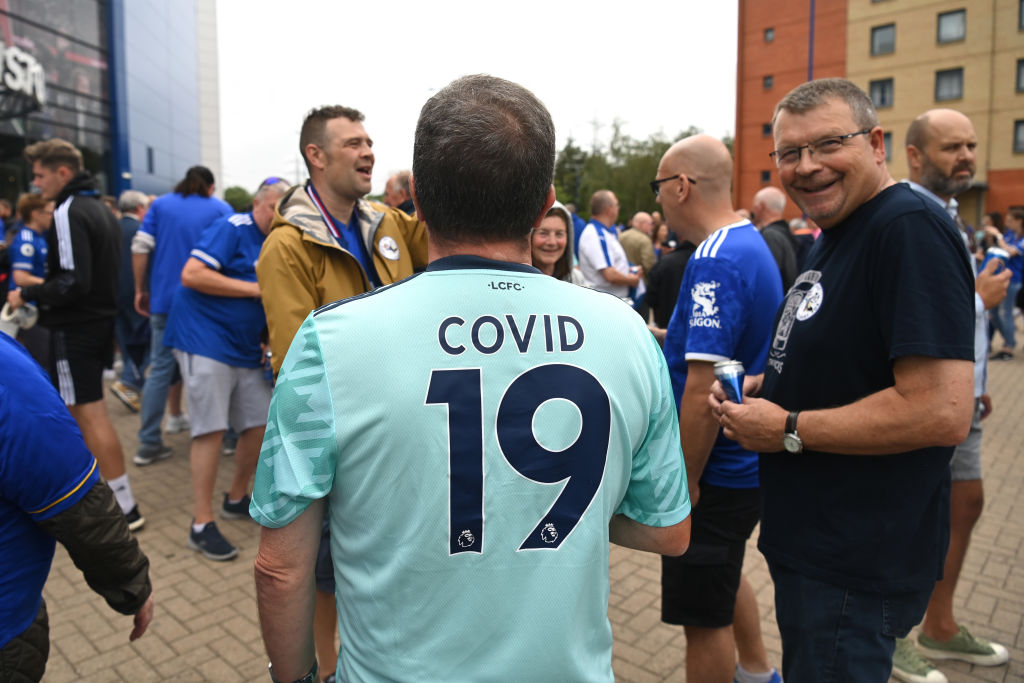Premier League: If players refuse vaccines, why should matches be postponed due to COVID-19 outbreaks?
With managers implying that squads aren't fully vaccinated, the goalposts may have changed in what constitutes reasonable grounds for COVID-enforced postponement of games

When football ground to a halt in England, Arsenal were the catalysts. When Mikel Arteta contracted coronavirus, the Gunners' March 2020 game at Manchester City was called off. It transpired the Premier League would not return for three months.
When it came back this summer, after a slightly shorter break since the end of last season, Arteta was expecting another COVID postponement. Arsenal instead played the season opener at Brentford and lost it 2-0, minus Pierre-Emerick Aubameyang, Alexandre Lacazette, Alex Runarsson and Willian, who had all rested positive. It is tempting to wonder whether a reserve goalkeeper Arsenal spent the summer trying to demote to third-choice and the Brazilian - one of the worst signings in their history - would have made much of a difference to the scoreline.
In any case, Premier League rules suggest a postponement will not be granted where a club has at least 14 players available and, despite some other injuries, Arsenal did. Ben White has subsequently tested positive. Arteta has said that most of his players are fully vaccinated, without revealing which.
Meanwhile, Steve Bruce was blunter in assessing the situation at Newcastle. His goalkeeper Karl Darlow, a healthy 30-year-old, had been hospitalised after catching the virus. Allan Saint-Maximin and Jamaal Lascelles missed significant portions of last season with long COVID. Newcastle’s form suffered and given the significance of the flair player and the captain, at one stage it seemed as though it might relegate them.

And yet, Bruce said on Friday, “we have got a lot of players who haven’t had the jab.” Bruce cited the medical experts who were in favour of vaccination, the hospitalisations of young people who have declined to accept and summed up the counter-argument: “There are a lot of conspiracy theories out there.”
There comes a point, in football as in society, where the vast majority of us should not be held hostage by conspiracy theorists and idiots. Vaccines do not offer perfect protection, but the evidence is overwhelming that they reduce cases, hospitalisations and deaths and permit a return to something that can at least vaguely resemble normality.
As Pep Guardiola put it: “All the scientists, all the doctors, all the big specialists about medicine say the only solution to eradicate or help to move forward after this two years of pandemic situation is being vaccinated, I think they should consider it." And if the power of persuasion does not work, the unvaccinated should face consequences.
Get FourFourTwo Newsletter
The best features, fun and footballing quizzes, straight to your inbox every week.
While sport can embrace too many Americanisms, the Premier League could take a lead from across the Atlantic, from a country that is far more divided because of anti-vaxxers. In American football, the NFL told clubs it would not extend the season if games are postponed due to COVID outbreaks among unvaccinated players. Nor would players on either side be paid for such matches that were called off while the unvaccinated players would be liable for the financial losses. Unsurprisingly, uptake seems very high.
🗣 "It's something I would encourage, of course."Brighton boss Graham Potter has encouraged everyone to get vaccinated against Covid-19 and revealed he lost a family member to the virus pic.twitter.com/BeAlwCSysWAugust 19, 2021
The Premier League ought to follow suit if encouragement and incentives do not convince enough players. So far, there has been a similar managerial mantra across the division: they are fully vaccinated, they would encourage their players to be likewise but cannot force them.
But citing a freedom of choice to take a risk that can inhibit, and possibly endanger, others’ lives is freedom for fools. It is easy to accuse clubs and the league of greed, especially when football was played in a pandemic, but it is not just about the broadcasting contracts: less so now when fans are back in grounds, along with many of the non-playing staff, when jobs both inside and outside stadia revolve around football matches actually happening. When supporters could be asked for proof of vaccination or a negative test, it is not unreasonable for players to have the jab.
The Brentford-Arsenal match may have set a new tone. The first game of the campaign assumes a greater importance and not merely because it was Brentford’s first in the top flight for 74 years and first with a full capacity at their new ground. But postponing any other game affects jobs, businesses and schedules. Missing one needlessly can damage the club that pays footballers for a reason. Any unvaccinated player who gets ruled out by Covid feels guilty of professional negligence and in breach of contract. They should not expect to be paid.
And, no, it is not comparable to incurring a hamstring strain or hurting themselves in a tackle. When a footballer wants a new contract or a new club, that employer is entitled to ask if there is a greater possibility they will be available. Because others should not suffer for their stupidity.
Subscribe to FourFourTwo today! Guarantee the finest football stories and interviews dropping on your doorstep first every month.
NOW READ
LIST 12 of the most shocking player vs fan punch-ups
FANTASY PREMIER LEAGUE FourFourTwo writers reveal their FPL teams
ARSENAL It's not the defeats that are worrying for Arsenal – it's the total lack of creativity
Richard Jolly also writes for the National, the Guardian, the Observer, the Straits Times, the Independent, Sporting Life, Football 365 and the Blizzard. He has written for the FourFourTwo website since 2018 and for the magazine in the 1990s and the 2020s, but not in between. He has covered 1500+ games and remembers a disturbing number of the 0-0 draws.

